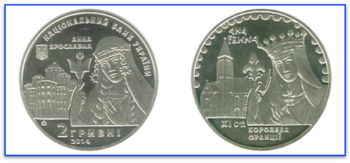Years ago, I had a housemate from Ukraine. He is a linguist and, at the time, was translating 11th-century documents about Yaroslav the Wise, the Grand Prince of Kyiv. Coincidently, I was writing about the 11th-century Norman Invasion of England.

We shared our research, laughed together, and sometimes we translated Greek texts—he more agile than I—for sure.
Yaroslav’s daughter, Anna of Kyiv, became queen of the Franks when she married Henri I Capet. King Henri recognized his ward, the seven-year-old, illegitimate William, as the seventh duke of Normandy.
Anna was related to Vikings from Sweden who sailed the Slavic rivers, named the Rus, and situated themselves in micro-kingdoms like Kyiv. Anna gave the Greek word for lover-of-horses, Philip, to her son, linking the West to the ancient Mediterranean world. Anna’s fourteen-year-old son, King Philip ruled France when his vassal, William the Bastard, became king of England. As regent for her minor son, Anna gave Philip a stable and fiscally sound kingdom. She also had a scandalous affair with a married man.
I’d love to tell her story someday. I imagine a delegation of French nobles and prelates arriving at the palace in Kyiv, an eighteen-year-old girl pulling herself up to a high window to see them crossing the river, their splendid horses, the pageantry, knowing that she was the purpose of their months-long journey. Yum, what a tale.
In 2014, Ukraine issued a special coin to honor Anna, who symbolizes Ukraine’s cultural and national independence.
